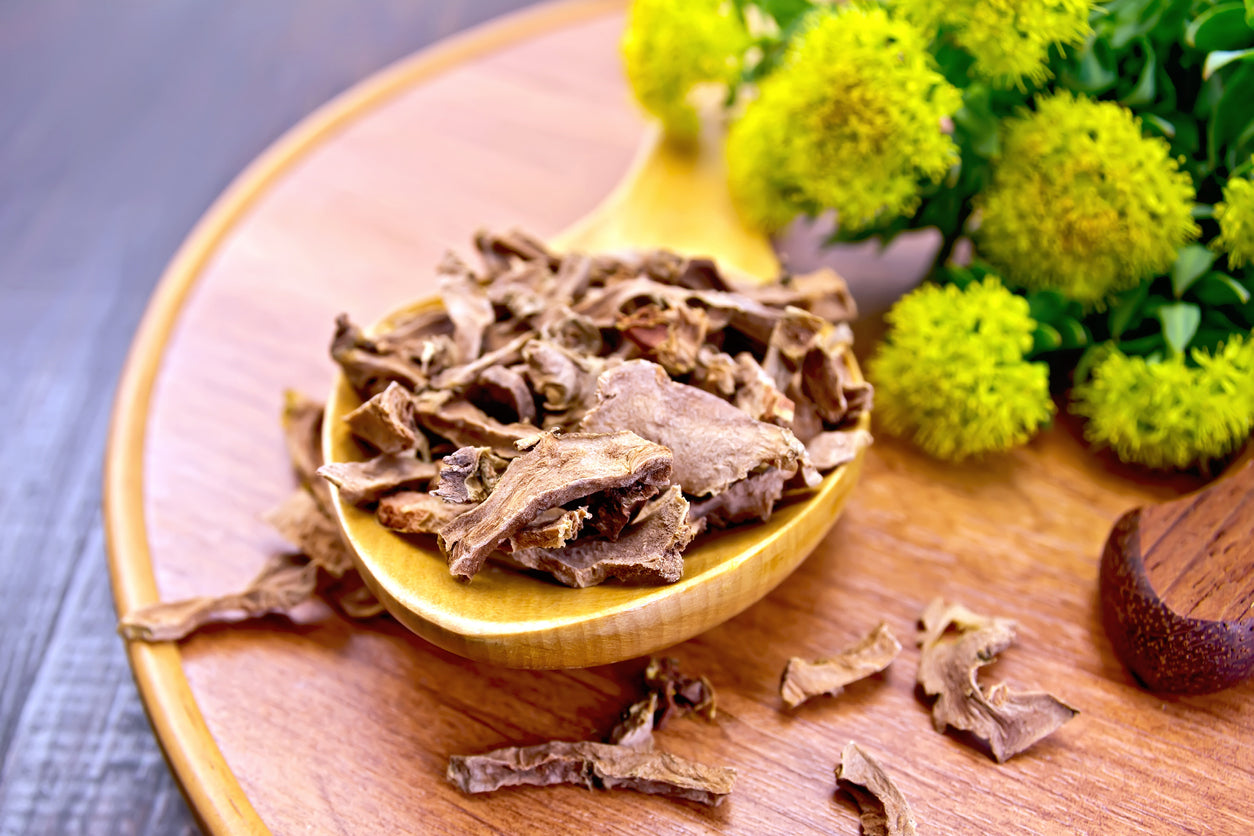Optimize your mental and physical stamina (and crush stress) with this Arctic herb

If you’ve been feeling fatigued, anxious or “burned-out” lately, you have plenty of company. The American Psychological Association reports that a whopping 55 percent of Americans currently report feeling stressed. In fact, the organization maintains that the COVID-19 pandemic - in conjunction with acknowledged stressors such as financial strain, relationship woes and work-related demands - has triggered an ongoing national mental health crisis.
In light of this, what better time could there be to discover the benefits of rhodiola rosea? Native to the Artic areas of Europe and Asia, rhodiola (also known as goldenroot) has been used for centuries in Russian folk medicine and Traditional Chinese Medicine as a tonic to treat stress-induced fatigue, anxiety and “blue” moods. Let’s check out the attributes that make rhodiola such an ideal solution for the challenges of today.
Rhodiola may help restore energy
Chronic stress can cause a litany of ills, including headaches, fatigue, muscle pain, anxiety, depression, impaired concentration and memory problems (“brain fog”). Rhodiola is classified as an adaptogen - or substance that helps the body deal with physical and mental stress - and is uniquely situated to address these problems.
In several recent scientific reviews, the authors cited “encouraging clinical evidence” that rhodiola has beneficial effects on physical performance and can help prevent and treat persistent stress symptoms. In one study, for example, rhodiola was shown to reduce not only general fatigue and drowsiness but specific physical symptoms such as muscle soreness and headache.
In a double-blind study involving students studying for exams, rhodiola substantially enhanced well-being and physical fitness, decreased mental fatigue and helped participants improve scores on neuro-motor tests. (The rhodiola group even scored higher on their exams, racking up scores that were 8.4 percent higher than the scores of their peers in the placebo group). Finally, studies involving military cadets have also supported rhodiola’s ability to decrease fatigue.
Rhodiola can help restore mental clarity and sharpen focus
According to a recent review published in the International Journal of Psychiatry in Clinical Practice, rhodiola offers comprehensive treatment of stress symptoms, and can help address poor concentration and lack of motivation. One six-week double-blind study - which involved a group of young doctors working high-stress overnight shifts - was particularly encouraging. The authors found that the doctors in the rhodiola group outscored their colleagues in the placebo group in such important perceptive functions as associative thinking, short-term memory, calculation, concentration, and perceptive speed. (All important skills for physicians under pressure!)
In an additional study, participants receiving 400 mg of rhodiola a day for eight weeks experienced substantial improvements in stress symptoms, concentration and mood. Rhodiola proponents say that the studies show that rhodiola really can help people "power through" stressful and challenging tasks.
Lift your mood with rhodiola
Rhodiola, which contains powerful antioxidants such as rosavin and salidroside, appears to work by increasing levels of the mood-stabilizing brain chemicals serotonin and dopamine. It also raises levels of beta-endorphins, which are “feel-good” neuropeptides with antidepressant and stress-relieving effects. According to the recent review published in the International Journal of Psychiatry in Clinical Practice, rhodiola can lower levels of cortisol, the “stress” hormone.
In addition, rhodiola has been found to have neuroprotective qualities, meaning it can help preserve brain health and prevent damage from toxins. While rhodiola is not a “silver bullet” against depression, proponents say that it may help relieve a gloomy mood and promote a sunnier, more positive outlook.
Use a high-quality standardized rhodiola rosea product
Integrative healthcare providers advise rhodiola in varying amounts, depending on the situation. Typical recommended amounts range from 50 mg to 680 mg of rhodiola a day, used for up to ten weeks.
Naturally, consult your own integrative doctor before supplementing with rhodiola - and don’t stop taking prescription medication unless your doctor advises you to. To avoid possible impurities, choose a reputable vendor and opt for a high-quality product carrying the USP or NSF seal, with a formulation standardized to contain 3 percent rosavins and 1 percent salidrosides.
Many people would agree: we are living in inordinately stressful times. Whether you’re dealing with a high-pressure job, the demands of child care, a rigorous study schedule or the challenges of shift work, rhodiola rosea could be a helpful ally. Maybe it’s time to talk with your integrative doctor to see if supplementation could be right for you.
Sources for this article include:






